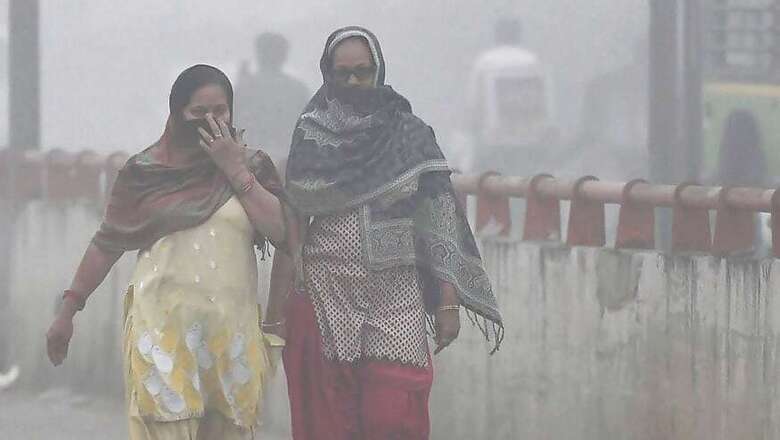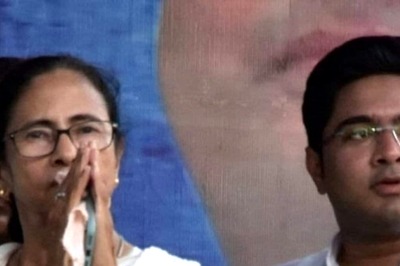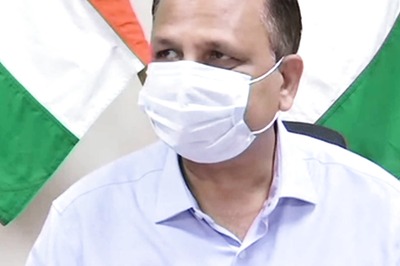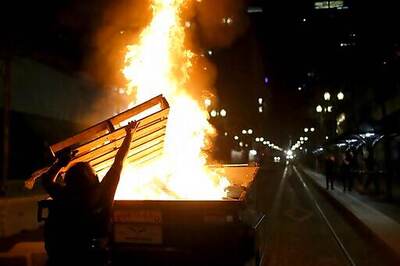
views
New Delhi: Of the 102 cities in India, spread across 23 states that are worst polluted, Rajasthan cuts a solitary figure with the state yet to submit a city-specific air action plan for its five most polluted cities to the Central Pollution Control Board (CPCB). The state government, though, argues that the delay is "because it is following the scientific process" that other states have not.
In May, the World Health Organisation (WHO) global air pollution database was released in Geneva and it found that India had 14 of the 15 most polluted cities in the world in terms of PM 2.5 concentrations. Of these, the worst are Kanpur, Faridabad, Varanasi and Gaya. On the basis of this WHO report and its own data, the CPCB created the list of 102 "non-attainment cities" and has been working closely with them to develop city-specific plans.
Rajasthan, in this regard, is key. With it sharing its boundaries with Delhi, air pollution in the state has a direct impact on the capital's air quality. This had become apparent in June this year, when the air quality remained 'severe' for five days in peak summer due to a dust storm originating in Rajasthan and spreading all the way to western Uttar Pradesh. Five cities in the state are on the list: Alwar, Jaipur, Jodhpur, Kota, Udaipur.
A CPCB official said, "The idea was that we tell the state pollution control boards that there is a need for a time-based action plan to mitigate air pollution in their cities, and for that, they need to start sensitising the citizens and start taking action immediately."
The plan is a part of the Centre's decision to launch a dedicated air pollution air abatement programme under the National Clean Air Programme. The official added, "So far, Rajasthan has been the worst performer. We have not received any plan from them."
But Aparna Arora, Rajasthan State Pollution Control Board (RSPCB) chairperson said, "We have not submitted the plan because we are conducting a source apportionment study for the different cities."
Dr. Vijai Singhal, Chief Environmental Engineer, RSPCB added, "One has to figure out what is causing the air pollution. It is different for each city. The source apportionment study allows you to know exactly what the different pollutants are and the extent to which they contribute to the dip in air quality. For this, we are presently getting the study done for Jaipur by IIT Kanpur. This will be finished by the end of this year. After this, we will also get it done for Bhiwadi and the other cities."
CPCB, though, maintained that it had provided a "template" to the different cities, on the basis of an analysis it conducted of source apportionment studies that had been conducted in different India cities, including Delhi. On the basis of this template, it had asked other cities to submit their plans. An official said, "We largely know what causes pollution in different cities. The sources remain the same, whether they are road dust or vehicular pollution. We asked them, that if they have in the past conducted any study, then they should take those findings into consideration."
But official from the RSPCB said, "This is not how science works. Air pollution can vary from city to city, from state to state and from season to season. In a state like Rajasthan, where you've arid, dusty areas and dense forested areas - how can you've a one-size-fits-all template for air pollution? The other states appear to not have bothered."
Former CPCB member-secretary B Sengupta explained, "A source apportionment study is a very important item that has to be undertaken before creating any air action plan. What the Rajasthan government is saying is correct. They need to conduct the study in order to identify specific pollutants before coming up with a rigorous long-term plan."




















Comments
0 comment